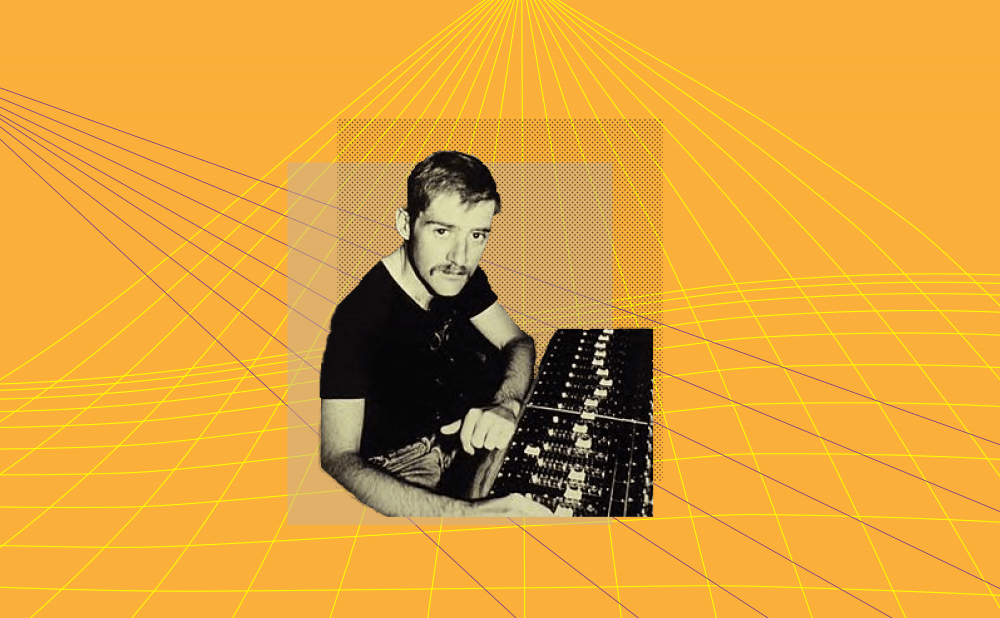In Recess’ “In Retrospect” column, writers revisit pop culture from the past. Today, Managing Editor Will Atkinson looks at the legacy of Patrick Cowley, one of disco’s overlooked pioneers.
For a record producer, underappreciation comes with the territory: There’s a reason why no one can name the producer of most chart-toppers, and why the few who do earn some name recognition — the Max Martins and Phil Spectors of the world — are elevated as such remarkable exceptions.
Never was this more the case than during the disco era, when largely anonymous production teams churned out hit after hit by partnering with equally-anonymous singers who nevertheless became the name, and the face, by which the project was recognized. Yet even by these standards, the recognition of Patrick Cowley, the producer who pioneered disco and dance music through the early 1980s, has been long overdue.
Working amid the gay club scene of San Francisco, Cowley was the producer behind a number of hits in the disco era, most notably Sylvester’s “You Make Me Feel (Mighty Real).” He’s been cited by New Order and Pet Shop Boys as an influence, and his fingerprints are all over dance music. But until this decade, when San Francisco’s Dark Entries Records began unearthing a trove of previously unreleased material by Cowley, bringing his work to a new generation and a wider audience, relatively few remembered his name.
One simple reason for this lack of recognition was that Cowley’s career was cut tragically short, such that he barely witnessed the peak of his fame: He died of what was later known to be AIDS in 1982 at age 32, at a time when the disease was still widely misunderstood and misdiagnosed. But his brief period of productivity was an incredibly prolific one nonetheless, with three studio albums to his name, dance chart-toppers, numerous collaborations and even some surprisingly psychedelic soundtracks to gay porn films.
And within that short time, Cowley managed to make his influence widely felt. He is often lumped in as one of the earliest purveyors of “hi-NRG” dance music, which initially found its greatest success in the gay scenes of cities like San Francisco with artists like Divine and Sylvester. As a genre, hi-NRG’s name says it all — a highly-energized and heavily-synthesized variant of disco, it’s marked by octave-jumping basslines, frantic tempos and overt lyrical innuendo. (Most people probably know it by its delayed peak on the mainstream charts with Dead or Alive’s “You Spin Me Round (Like a Record).”) It’s safe to say that without hi-NRG, and perhaps without Patrick Cowley, there would be no “Blue Monday,” to say nothing of electronic dance music today.
But where hi-NRG music could sometimes be marked by a somewhat austere mechanization, the lasting power of Cowley’s music lies in its very human-ness. In a genre defined by its dependence on machines, Cowley is the rare case where it is evident there is a man behind them. You may never hear his voice, but every Patrick Cowley record is unmistakably a Patrick Cowley record: There’s a certain bounce to the basslines, a certain playfulness to the synths, a vitality to the ever-present tambourine and cowbell that’s a far cry from the worst stereotypes of rigid, repetitive dance music.
Even more than most producers of his era, Cowley’s tracks sound distinctly handmade, lacking the assistance of MIDI sequencers or quantization — which lends most modern pop music its metronomic, sometimes robotic consistency — and this barely perceptible imperfection is evident from the first notes of tracks like the Paul Parker collaboration “Right on Target” and his breakout remix of Donna Summer’s “I Feel Love.”
The recent releases by Dark Entries, too — which include the trilogy of 2013’s “School Daze,” 2015’s “Muscle Up” and 2017’s “Afternooners,” the aforementioned porn soundtrack compilations — reveal the seeming ease with which Cowley could apply his talents, even well beyond the dancefloor. Whatever their original purpose, those records contain some of Cowley’s greatest experimentation in the studio, branching into both dark ambience and sprightly funk yet only expanding on his signature sound, synth-driven yet never synthetic. That he recorded most of those albums in the late 1970s, when he was still in his 20s and before meeting Sylvester, only adds to his prodigious skill as a producer.
Although he had no way of knowing it, Cowley’s fate was bound up in the genre that he helped create — as the AIDS epidemic worsened through the 1980s, it devastated communities like his, and with it, the original audience for hi-NRG. And as the contributions to the rise of disco by gay men like Cowley were ignored, revised or made invisible in subsequent years, the producer’s work now stands as a fascinating document not only of a singular talent, but also of an often-forgotten chapter in American history.
It’s fortunate, then, that others have finally come to correct this archive and in the process bring to light a lost hero of disco. Within his short career, Patrick Cowley succeeded at being perhaps the best thing a producer can be: rarely seen and never heard, yet making his presence felt with every beat.
Get The Chronicle straight to your inbox
Sign up for our weekly newsletter. Cancel at any time.

